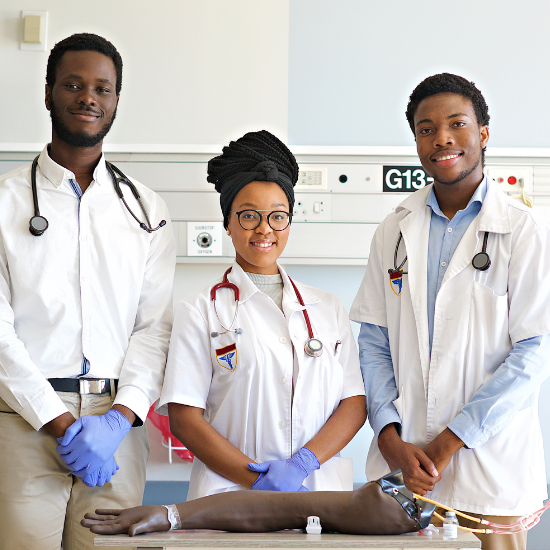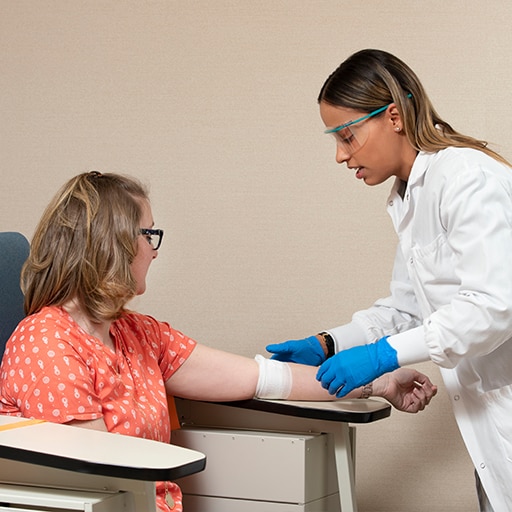Regional Northeast Medical Institute CNA Courses Near Me Stamford: Your Path to Accreditation
Regional Northeast Medical Institute CNA Courses Near Me Stamford: Your Path to Accreditation
Blog Article
Critical Factors to Consider When Picking one of the most Ideal Medical College Educational Program for You
Choosing the most fitting clinical institution educational program is an essential choice that can considerably influence your academic trip and future job path. As aiming medical specialists, the choice of educational program should line up with your individual understanding design and occupation desires.
Personal Learning Design

Medical institutions that supply diverse mentor approaches and resources can fit numerous finding out styles, fostering a vibrant and comprehensive instructional environment. Inevitably, understanding individual knowing choices encourages students to make educated choices concerning their medical education and learning, setting a strong foundation for their future professions in healthcare.
Job Goals Alignment
Additionally, lining up career objectives with the clinical college educational program can additionally improve motivation and involvement throughout the instructional trip. When pupils see the direct relevance of their coursework to their future career, they are extra most likely to stay specialized and focused to their studies. Therefore, when picking a medical school curriculum, it is crucial to meticulously think about how well it lines up with one's career purposes to make certain a successful and meeting professional course.
Teaching Methods
Taking into consideration the positioning of career goals with the picked clinical institution educational program, an evaluation of the training approaches utilized comes to be important in forming the discovering experience. The performance of a medical college educational program heavily relies upon the training methodologies used by the establishment. Numerous teaching techniques, such as lectures, little seminar, problem-based learning, simulation-based training, and hands-on scientific experience, can significantly impact exactly how well pupils grasp and maintain details.
Simulation-based training permits trainees to practice medical abilities in a controlled environment prior to communicating with actual people. Hands-on professional experience uses a firsthand understanding of client treatment and medical methods.
When picking a medical college curriculum, striving trainees should take into consideration the mentor methods used to make certain that their discovering preferences and toughness line up with the academic technique of the establishment.
Curriculum Adaptability
When examining medical college programs, assessing the level of curriculum adaptability is necessary for prospective pupils seeking a customized educational experience. Educational program flexibility describes the degree to which trainees can individualize their knowing courses within the medical institution curriculum. A curriculum that supplies flexibility enables students to pursue their passions, focus on areas where they require much more assistance, and take part in finding out experiences that align with their profession goals.

Possible clinical trainees should consider exactly how a clinical college's curriculum flexibility lines up with their understanding preferences, occupation desires, and personal objectives. By choosing a program that uses the appropriate equilibrium of structure and flexibility, students can enhance their academic experience and prepare themselves for effective jobs in medication.
Clinical Direct Exposure Opportunities
Discovering the functional application of clinical knowledge, clinical direct exposure possibilities play a vital duty in forming an extensive medical education. These possibilities supply trainees with important hands-on experience in real medical care settings, permitting them to connect the gap in between theory and technique. When thinking about medical institution curricula, the top quality and quantity of professional direct exposure must be carefully examined.
Effective professional exposure needs to provide a varied series of experiences throughout various specializeds, guaranteeing that pupils are exposed to various clinical situations and patient demographics. Direct exposure to outpatient clinics, inpatient wards, surgical cinemas, and emergency divisions can aid students create an all-around understanding of various facets of health care distribution. Furthermore, opportunities for community-based treatment and communications with underserved populations can promote a much deeper gratitude for the social factors of wellness.
Additionally, the existence of encouraging faculty and coaches throughout these medical experiences can significantly boost the click site discovering process. Professors assistance and useful responses can aid trainees assess their medical encounters, recognize locations for renovation, and boost their decision-making capabilities and scientific abilities (Northeast Medical Institute CNA Classes Near me Stamford). On the whole, durable medical direct exposure check out here chances are crucial for preparing future physicians to deliver quality patient care effectively
Conclusion
To conclude, when selecting a medical school curriculum, it is vital to consider your personal knowing style, alignment with career objectives, teaching methodologies, educational program adaptability, and scientific direct exposure chances. These elements play a vital duty in establishing the most suitable program for your educational and professional development. Make certain to thoroughly review each aspect to make an educated choice that will best sustain your growth in the medical area.
Comprehending one's personal discovering design is crucial when picking a medical school curriculum. By recognizing one's discovering style early on, aiming medical pupils can tactically choose an educational program that caters to their toughness, eventually enhancing their understanding experience and academic success.
When reviewing clinical school programs, examining the extent of educational program flexibility is essential for potential students seeking a customized academic experience. Educational program flexibility refers to the level to which students can customize their learning courses within the clinical school educational program.In conclusion, when choosing a clinical school educational program, it is important to consider your individual learning style, placement with profession purposes, teaching approaches, educational program flexibility, and scientific direct exposure opportunities.
Report this page